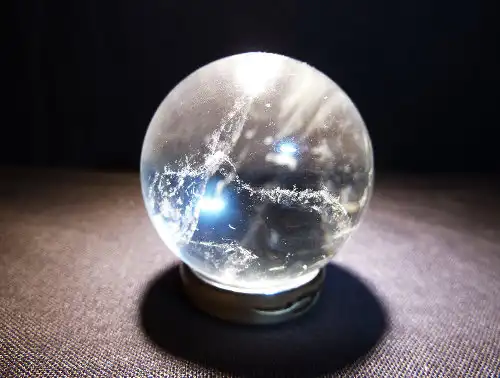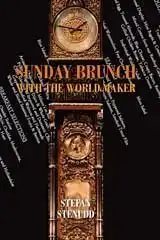Pseudoscience and Pseudoskepticism Speculations by Stefan Stenudd
But parapsychology tends to upset more than natural science ever does. It upsets lots of scientists, who regard it as utter nonsense, and that upsets a lot of people who put their trust in it. The battle has been going on since the 19th century, at least. One problem with parapsychology is that it's been professed by so many cheats, calling themselves psychics and making a living out of it or just using it to put some sparkle in their lives. But that's possible because the established scientific community, as well as organized society as a whole, doesn't want to have anything to do with it. So, it's virgin territory for scoundrels and the superstitious. If parapsychological claims were elaborately examined by the scientific community and debated in a scrutinizing way by the media and society as a whole, it would clear up quickly. I'm not saying that it would necessarily lead to all claims of parapsychology being refuted. That remains to be seen. Anyone insisting that nothing of it can be true is just as unscientific as they claim parapsychology to be. History has repeatedly shown us that unbelievable stuff turns out to be real. We simply don't know until we know. In the 1970s, probably as a reaction to the growth of New Age movements, skeptic societies started to be formed with the explicit intent of disproving paranormal claims of any kind. The first one was the Committee for the Scientific Investigation of Claims of the Paranormal (CSICOP), founded 1976 in the USA. Carl Sagan and several other famous scientists joined it. Already in 1980 they had a scandal, when trying to disprove an astrological claim (the so-called Mars-effect) and cheating when doing so. One of the founding members, astronomer Dennis Rawlins, reacted and left the organization. They later changed their name to the Committee for Skeptical Inquiry (CSI). It's an organization with a mission. They don't want to check if paranormal claims can be true. They want to prove them false. That's not a scientific attitude. They (and similar organizations) even insist on additional demands on the verification of paranormal claims. Carl Sagan said: "Extraordinary claims require extraordinary evidence." What's that? Extraordinary evidence. Either there's evidence or there isn't. Otherwise it would be like demanding a part to be more than 100% of the whole. What they mean, without admitting it, is that they just don't want to change their paradigm, their idea of how nature works. That's the problem with parapsychology. If it is real, something is very wrong with how the natural sciences describe reality. The consequences to established scientific definitions would be enormous. Precognition, telepathy, clairvoyance, psychokinesis that's not possible within the realm of present physics. So, why would a physicist want to examine such things, running the risk of having to throw his own knowledge into the fire? There's another problem with examining the paranormal, linked to that of its threat to the present understanding of physics. Since it presupposes that our laws of physics are incomplete or even faulty, how to be sure of an isolated, reliable testing method? We may be able to design a test that hints at something paranormal happening, but it's much more difficult to decide what paranormality that is. Most people claiming to have paranormal abilities also state very firmly that they don't have complete conscious control of these abilities. They are dependent on vague circumstances, such as mental calmness, a positive atmosphere, an object of heightened significance of some sort, et cetera. Since we deal with the psyche, that can come as no surprise but it fits poorly with the trial and error of natural science, which demands the repetition of identical experiments with identical outcomes. The psyche is not that clinically consistent. For example, when testing clairvoyance or telepathy with cards marked with different simple symbols, again and again to exclude statistical coincidence that's boring. What mind works well when bored? Natural science deals with the palpable world (mostly), whereas parapsychology by definition is something of the psyche, which is rarely palpable and its workings are often seemingly irrational, impulsive, and constantly changing. To a great extent, psychology meets with the same problem. Statistics may show the likelihood of some or other human behavior, but the individual is still quite unpredictable. There are so many exceptions to any psychological rule, natural scientists sneer at it. The only reason psychology is sort of accepted as a science is probably because it adheres faithfully to the paradigm of present natural science. Psychology makes sure not to be a threat or a challenge to natural science, so it's allowed in the temples of learning, albeit in the foyers. How many theories in psychology would really pass Carl Sagan's demand for extraordinary evidence? Coming to think of it, how many theories of natural science would? These last few years, I've noticed the term pseudoscience used for the whole bunch of ideas that do challenge or oppose the natural science paradigm parapsychology, astrology, and so on. That's a strange term. Pseudo means lying or false (intentionally false). So, false science. That's stating that it can't be true, also that its proponents really know this. Quite an insult and quite unscientific, of course. According to Wikipedia, where the term is used a lot, pseudoscience is a word dating back to at least the late 18th century. But my impression is that it's been pretty much asleep, waking up the last decade or so. I suspect the use has been encouraged by the skeptic organizations, but I don't plan to spend time investigating it. I checked Google Trends, but that starts at 2004. Pseudoscience as a search word has had about the same popularity all through that short period. But when trying the Swedish synonym, pseudovetenskap, Google Trends showed that its use started in 2009. Before that, nothing. I compared with the word parapsychology and found that since 2004, its use on search engines has decreased tremendously also the Swedish equivalent. Since the last year or so, pseudoscience is searched more than parapsychology. The derogatory term replaces the name of the discipline. On the other hand, the word metaphysics remains much more popular than both of the aforementioned (probably mostly thanks to Aristotle), and the word paranormal practically hits the ceiling increasing tremendously from the fall of 2009. That's all worth studying, but I move on. Pseudoscience is a ridiculous term, but it has its counterpart: pseudoskepticism, which was introduced in 1987 by sociologist Marcello Truzzi, who was actually one of the founding members of CSICOP. He used it for skeptics who were just out to deny paranormal claims, whatever science they had or lacked to support it. That term makes more sense than pseudoscience, since it points out individuals instead of complete fields of research. Still, it's not likely to move the investigation forward. And according to Google Trends, it hasn't caught on. A serious investigation of the paranormal is still distant.
Stefan Stenudd August 13, 2012
More Speculations
About CookiesMy Other WebsitesCREATION MYTHSMyths in general and myths of creation in particular.
TAOISMThe wisdom of Taoism and the Tao Te Ching, its ancient source.
LIFE ENERGYAn encyclopedia of life energy concepts around the world.
QI ENERGY EXERCISESQi (also spelled chi or ki) explained, with exercises to increase it.
I CHINGThe ancient Chinese system of divination and free online reading.
TAROTTarot card meanings in divination and a free online spread.
ASTROLOGYThe complete horoscope chart and how to read it.
MY AMAZON PAGE
MY YOUTUBE AIKIDO
MY YOUTUBE ART
MY FACEBOOK
MY INSTAGRAM
MY TWITTER
STENUDD PÅ SVENSKA
|
 Sunday Brunch with the World Maker
Sunday Brunch with the World Maker